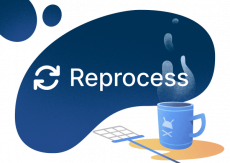|
By Joey P
At BugSplat, we always advocate for teams to introduce crash reporting and establish a bug-tracking/bug-fixing workflow early in their development process. So you can imagine my excitement when I found myself at Denver Startup Week chatting with the founder of a startup that has several projects in flight. He mentioned they’d just kicked off development of a new application, and things were moving quickly.
|
By Joey P
We’re excited to announce that one of the most popular feature requests is finally here: BugSplat now supports Dark Mode! Whether you’re burning the midnight oil or just prefer a more eye-friendly interface, Dark Mode is here to make those late-night debugging sessions a bit more comfortable.
|
By BugSplat Team
We're excited to announce that BugSplat's integration with Monday.com is now in beta! This powerful combination brings crash reporting and project management together, helping development teams work more efficiently and resolve issues faster.
|
By Joey P
At BugSplat, we've been supporting applications and video games with crash and error reporting for a long time. Over the years, we've collaborated with a wide range of teams, handling applications of all sizes. From our experience and numerous conversations with users, we've noticed an interesting trend: the distribution of crashes isn't uniform. If your application experiences 100 crashes in a given version, those crashes aren't caused by 100 different defects.
|
By Joey P
At BugSplat, we’re constantly striving to enhance our platform to meet the evolving needs of our users. We’re excited to introduce our latest feature: Custom Attributes. This powerful addition allows developers to attach any number of custom attributes to crash reports, making BugSplat more customizable to your individual use case and enabling deeper integration with your projects.
|
By Joey P
As we've turned the final pages of 2023 and now set our sights on 2024, it felt like an appropriate moment to pause, reflect, and shine a light on the steps we've made over the past year at BugSplat. There are a couple of compelling reasons to do this: First, we recognize that some of our key updates might slip under the radar amidst the hustle and bustle of daily tasks. Highlighting these changes is our way of giving you a second chance to discover some useful new features at your disposal.
|
By Joey P
At BugSplat, we're always looking for ways to seamlessly integrate critical crash data into the support workflow. Another step in that quest has just been launched - the ability to automatically create defects from BugSplat databases in attached third-party trackers like Jira, Github Issues, Azure DevOps and more. This isn't just a new feature - it's a game-changer. Here's why.
|
By Joey P
Building and supporting a video game project is challenging. It is a complex and intricate process that balances difficult time constraints and ambitious goals while keeping a highly engaged and demanding user base happy. Game developers need every advantage possible in the development and support process to succeed. One of the best ways to ensure that a game is successful is to make sure that every shipped version of the game project contains as few crash-causing defects as possible.
|
By Joey P
At BugSplat, we're constantly searching for ways to help our users save time and energy while fixing crashes. We do this by providing them with more tools to quickly identify the underlying defects that cause problems in their apps. In that vein, we're excited to introduce the Batch Reprocess Tool (view technical doc here), a new feature that allows users to quickly select a set of crashes and have them reprocessed in bulk.
|
By Joey P
At BugSplat, we have a unique view of how uncaught crashes can impact individual teams (and entire companies) through our work building tools to find and fix bugs in live applications. We've seen firsthand the difference it can make when teams have a workflow for reporting every defect that makes it into production and when they don't.
- October 2024 (2)
- August 2024 (2)
- June 2024 (1)
- January 2024 (1)
- September 2023 (1)
- July 2023 (1)
- June 2023 (1)
- May 2023 (2)
- March 2023 (1)
- January 2022 (1)
- January 2021 (1)
- October 2020 (1)
- August 2020 (2)
- May 2020 (4)
- April 2020 (4)
- January 2020 (1)
- December 2019 (1)
- September 2019 (1)
- August 2019 (1)
- May 2019 (2)
- March 2019 (1)
- February 2019 (1)
- January 2019 (1)
- December 2018 (1)
- April 2018 (3)
- October 2016 (1)
Crash reporting and management for your software. Monitor, debug, and exterminate the critical bugs hiding in your code.
BugSplat is a crash reporting tool which easily integrates with your software to deliver Clutch data on crashes for a fraction the cost of rolling your own solution.
BugSplat crash reporting is the key to crushing your bugs:
- Deep data instantly on all your crashes: Automatically view the actual line of code that caused your software to crash. Includes important data such as symbolic call stacks, function names, line numbers, and a user description.
- Find your most difficult bugs without the hassle: BugSplat records each crash experienced by your users in detail, eliminating the chore of reproducing bugs.
- Replace your frustrating proprietary system: Building and maintaining your own crash reporting system is hard work. You've got plenty of that already.
- Support across Windows, Mac, Linux, and more: BugSplat tracks crashes across your different platforms, allowing you to have all your crash data in one place.
Cross platform crash reporting that just works.











